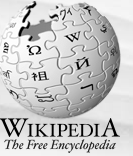
A recent article in Education Week, Embracing Wikipedia, by Matthew Shapiro, reports that in 2010, a University of Washington study "found that 82 percent of students use Wikipedia in their course-related research." Yet many teachers and media specialists I have spoken with ban Wikipedia completely, citing concerns over accuracy.
What if, as the Education Week article suggests, we teach students HOW to use Wikipedia rather than just banning it? What if we use it to teach them to become critical consumers of information and to evaluate content for such issues as "authorial bias"?
As Shapiro states in the article, when many of us went to school, our research revolved around the Readers' Guide to Periodical Literature, which had limited citations, the sources of which may or may not have been available in our print-based libraries. In 2010, our students are constantly inundated by information from multiple sources both print and digital, many only moments away from being live, including 24-hour news networks, blogs, ezines, YouTube, Twitter, and MMS messages that include images and video, as well as text.
Is it our job as teachers to hold back the tide, or to help our students develop the skills necessary to navigate the information technologies of their futures?
Is it our job as teachers to hold back the tide, or to help our students develop the skills necessary to navigate the information technologies of their futures?
1 comment:
I agree completely! I am an avid fan of Wikipedia, for the fact that 99% of the information is accurate, which I believe would compare favorably with Brittanica or World Book's print versions. The organizational structure allows for ease in finding specific information about a topic in a standardized format. Is it the only source to use. Surely not. but it is where I start. It is also very well sourced.
Post a Comment